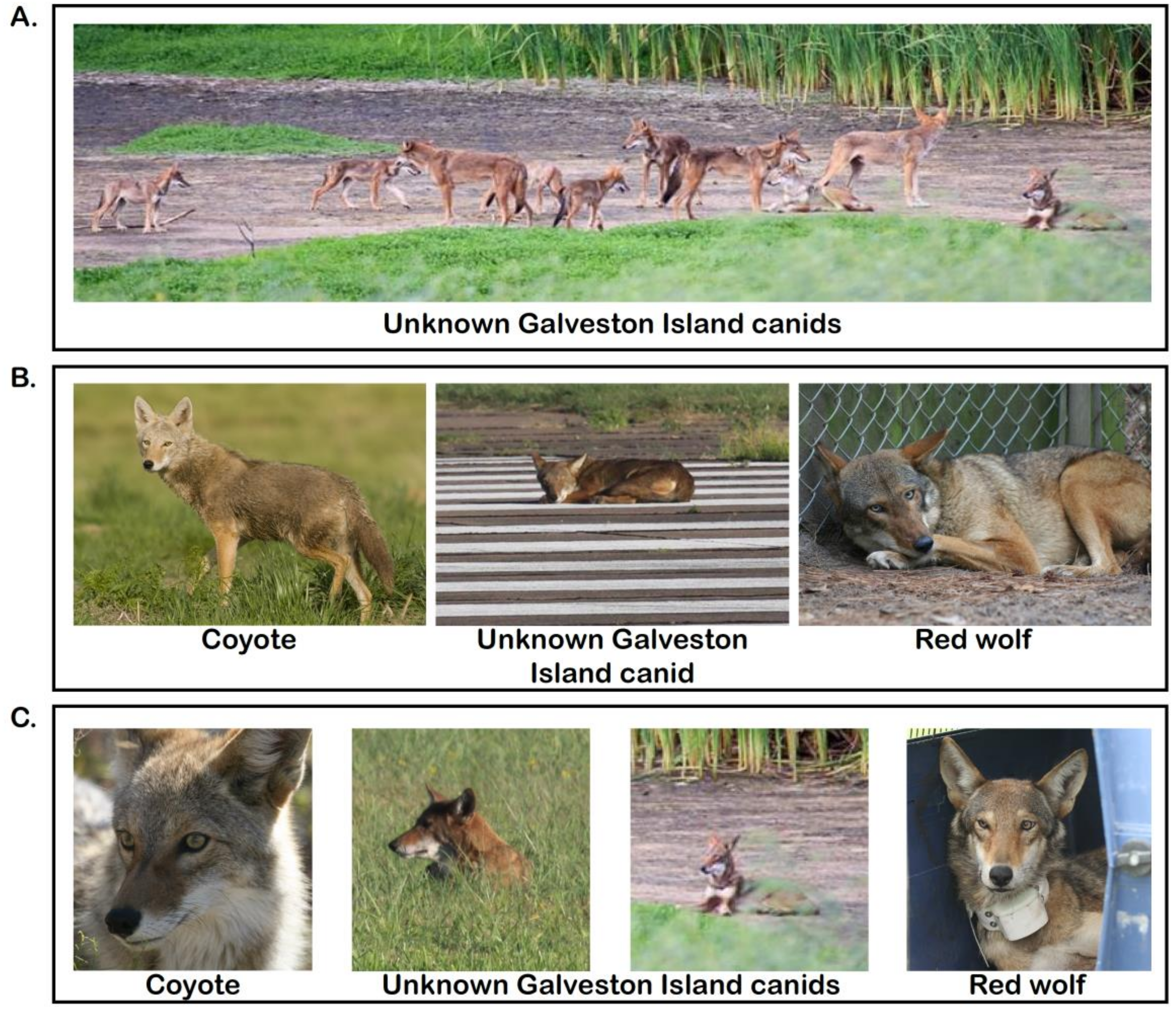They’re one of the cooler things about Galveston.
The coyotes that roam Galveston Island are quickly becoming famous.
The animals are the subject of dedicated social media pages and their silhouettes have been emblazoned on T-shirts. Earlier this year, they were the subject of a profile in the New York Times.
The coyotes in 2018 were found to be carrying genes matching American red wolves, a critically endangered species that today lives in one place in the wild, in a protected area of North Carolina. Galveston’s coyotes carry DNA from long-ago crossbreeding of red wolves and coyotes when the animals were both common in the American southeast. The genetic discovery could lead to ways to genetically preserve the red wolf from extinction, because Galveston’s coyotes could add to the genetic diversity needed to restore a small population.
But for now at least, there’s no laws protecting Galveston’s “ghost wolves” from humans or other threats. That’s why scientists hope they can keep attitudes towards the coyotes positive, in the name of preservation.
“They’ve heard that their coyotes are fancy and unique, and I don’t want there to be a divide in the community that lives with this and the people doing research,” said Bridgett vonHoldt, an associate professor of evolution and evolutionary biology at Princeton University, and one of the founders of the Gulf Coast Canine Project. “To put a face to science and scientists is so important.”
[…]
The coyotes are regularly seen hunting for rats in the dunes on Galveston beaches and also stay stay well fed by preying on the hundreds of feral cat colonies across the island, said animal service unit supervisor Josh Henderson. Since the beginning of 2021, there’s been no reports of the coyotes attacking humans, Henderson said. There have been reports of the coyotes attacking unattended pets, though those are rare compared to the number of sightings that ended without incident.
See here for some background. The story mentions a recent presentation on the red wolves at Moody Gardens, which I wish I could have attended. For now all is well with these beasts, but there ought to be some legal protections for them, just to ensure that they can continue to thrive. It took us a long time to figure out who they even were. Let’s not lose them now.

